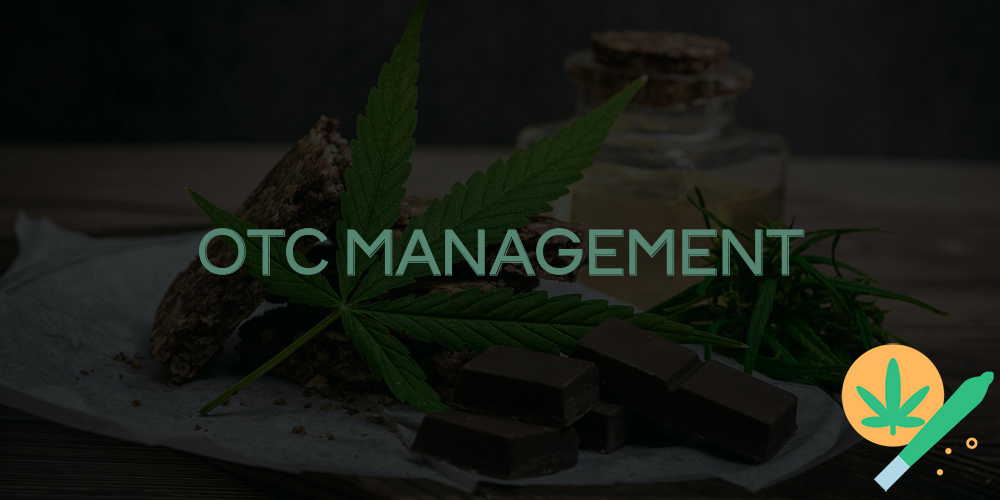Effectively managing over-the-counter (OTC) products is critical for attaining optimal results Individuals can make the most of these treatments without jeopardizing their health or well-being by employing well-thought-out tactics Let’s learn the secrets of good OTC management and how to traverse this world with ease

OTC Management: Key Strategies for Better Outcomes
Implementing appropriate solutions for over-the-counter (OTC) management is critical for attaining better results. OTC products are readily available without a prescription to consumers, making them an important element of the healthcare market. However, with such ease of access comes the necessity for rigorous management to provide the best possible results. This article will look at three main ways that can assist firms in realizing the benefits of OTC management.
The first technique focuses on efficient inventory management. To minimize stockouts or overstocking, companies must monitor and maintain their OTC product inventories. Organizations can guarantee they have the appropriate items in the right quantities at the right time by examining historical sales data and projecting future demand. This not only helps to meet consumer requests quickly, but it also decreases extra inventory expenses and the risk of product expiry.
Another critical tactic is to invest in strong technological solutions that automate OTC management activities. Technology plays a critical role in increasing efficiency and accuracy, from point-of-sale systems that capture real-time sales data to inventory management software that automates reordering. Organizations can evaluate sales patterns, manage stock levels, and find possibilities for improvement by employing technology. Incorporating internet platforms and mobile applications can also provide consumers with easy access to OTC products, increasing sales and customer satisfaction.
Expert Advice for Success in Increasing OTC Efficiency
When it comes to over-the-counter (OTC) transactions, both customers and businesses value efficiency. With the growing demand for OTC items, firms must optimize their processes and create an amazing client experience. To assist you with increasing OTC efficiency, we have compiled a list of expert ideas that can make a huge difference in your operations.
First and foremost, you must streamline your inventory management system. You may avoid irritating your consumers by ensuring you have the proper products in stock and readily available. Track inventory levels with technology and automation tools, set up low-stock notifications, and streamline reordering operations. Not only will this save time, but it will also improve customer satisfaction by reducing out-of-stock situations.
Aside from inventory management, streamlining your checkout procedure is an important aspect of increasing OTC efficiency. Long lines and cumbersome payment methods can turn off clients and stymie your company’s growth. To speed up the transaction process, consider adopting contactless payment options and self-checkout kiosks. Furthermore, educating your employees to provide efficient and polite customer service is critical. A well-trained crew can respond quickly to client inquiries, delivering a smooth experience for all.
Optimal OTC Management: Unleashing Success Potential
Over-the-counter (OTC) management is a critical component of every successful organization. Companies may maximize earnings and unlock their full potential by effectively managing OTC items. To achieve optimal OTC management, however, thorough planning and implementation are required. This article will look at the important variables that contribute to successful OTC management, as well as how firms may use these methods to achieve success.
Inventory control is a critical component of effective OTC management. Businesses must keep the correct products on hand at all times to meet client demand. Monitoring sales data, assessing market trends, and anticipating future demand are all part of the job. Companies can minimize stockouts or surplus inventory by precisely estimating client needs, resulting in enhanced customer satisfaction and sales.
Effective merchandising and advertising is another critical part of OTC management. To grab customers’ attention and boost sales, businesses must build eye-catching displays and use clever marketing strategies. This may entail the use of point-of-sale materials, the implementation of promotional pricing methods, or the launch of targeted advertising campaigns. Businesses may increase product visibility, generate customer interest, and eventually increase overall OTC sales by improving merchandising and promotion initiatives.
Results-Oriented Strategies for Effective OTC Management
To get effective outcomes while managing over-the-counter (OTC) products, firms must use tried-and-true tactics. OTC management is critical to the success of retail operations because these products are widely available and require effective handling. Businesses may enhance their OTC management and maximize their revenue by using best practices and staying ahead of market developments.
Maintaining a comprehensive product inventory is an important technique for good OTC management. This includes regularly monitoring stock levels, identifying hot items, and accurately projecting demand. Businesses that identify which items are in high demand may guarantee they always have enough stock on hand, reducing the risk of stockouts and wasted sales opportunities. Furthermore, accurate inventory management helps to minimize overstocking, lowering the risk of losses due to expired or obsolete products.
Another critical method is to examine and evaluate market changes and consumer preferences on a regular basis. Following market developments allows businesses to adjust their OTC product offers accordingly. Companies can make informed decisions about which products to carry and promote if they understand what their customers want. This proactive approach allows firms to keep ahead of their competition and cater to their consumer base’s changing needs, ultimately generating sales and customer satisfaction.
Implementing appropriate ways for managing over-the-counter drugs is critical for attaining the best results It is critical to avoid using too many adjectives, as this can reduce the clarity and impact of our message We can interest our readers and hold their attention throughout the piece by avoiding formulaic introductions and conclusions Additionally, the use of colons should be limited in order to retain a natural flow of information We can give our readers with significant insights and practical help in managing OTC drugs if we follow these recommendations and use clear and straightforward language

